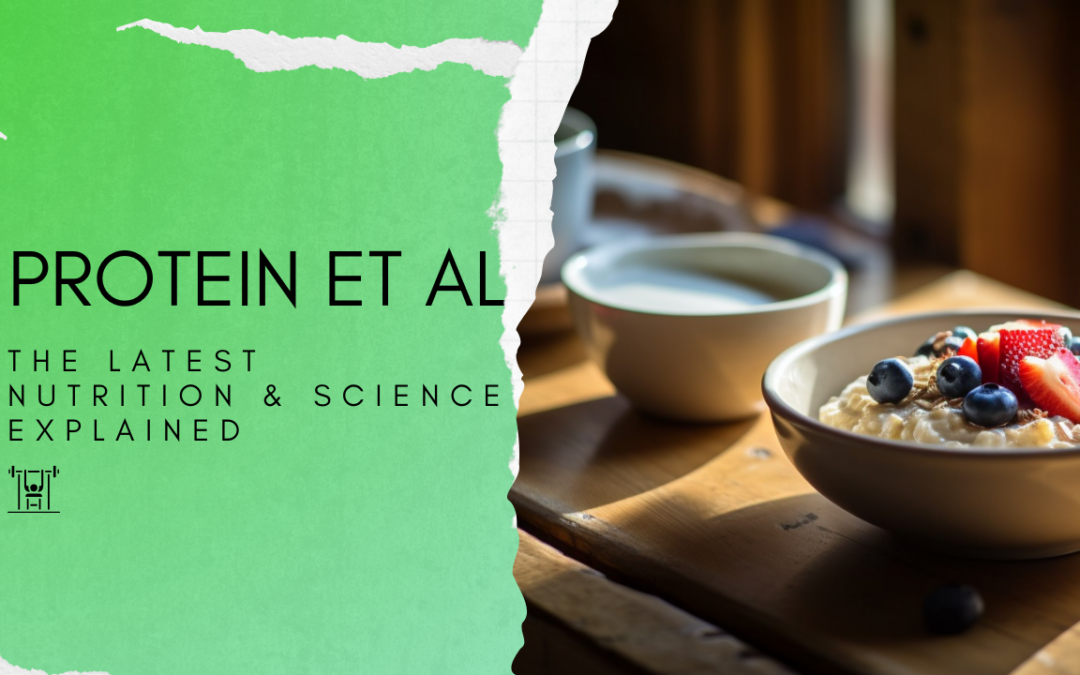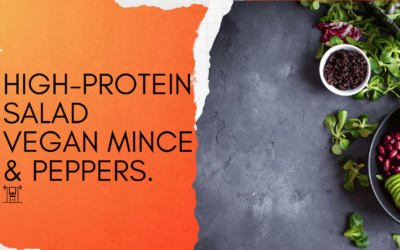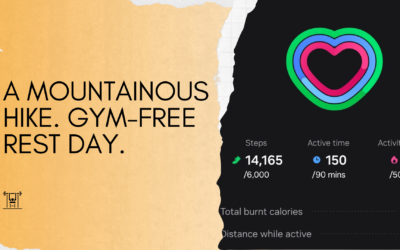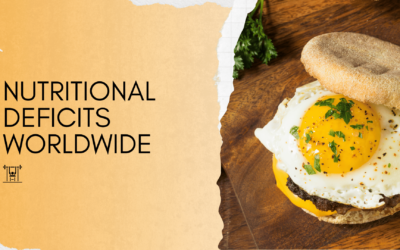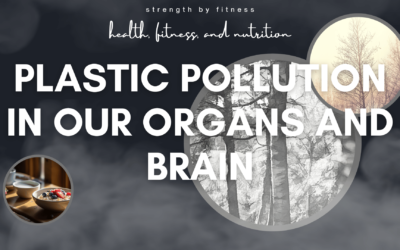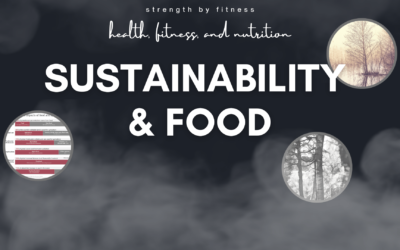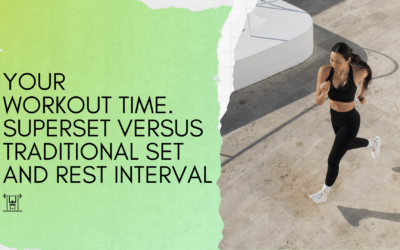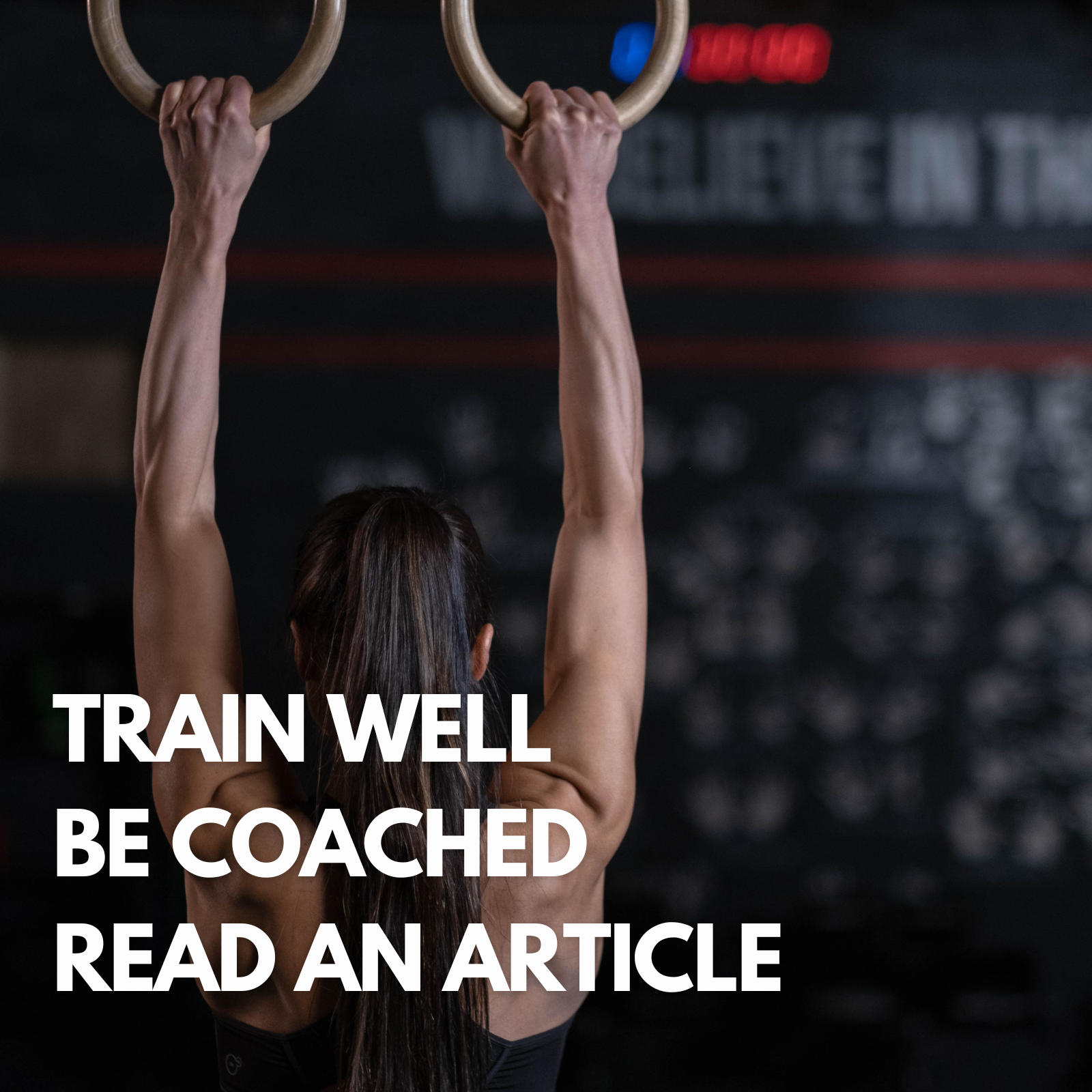
Strength By Fitness
Protein Et Al. Science & Health Outcomes Explained.
In Our Latest Fact-based Article We Take A Look At Some Fresh Of The Press 2024 Studies While Giving You The Real-Life Impact Of High-Protein And Your Fitness & Health.
First thing first, this long-form article is based on not just the latest 2024 studies, but decades of my own fact-based, highly informed healthy fit living & my decade-spanning full-time job as a nutritional coach & personal trainer helping people achieve vastly better strength, health, muscle mass, metabolic health, body composition and cardiovascular capacity in and outside of the gym.
So when we put all this together this article is what we arrive at.
Protein First.
This is The Easiest Food Pillar There Is And Unlike Other Food Hacks, It Is 100% Backed Up By Science And Real-life Outcomes.
Yes, this major food pillar is no surprise to longtime readers and clients of mine. I have rightly been talking about the science and real-life benefits & importance of high-protein food plans for the last 15 to 20 years.
So there is no grand shakeup here, the latest studies that keep coming in are just reinforcing and validating the fact-based approach I have chiseled out for the last 20+ years. Of course, with more data points and layers being peeled away, we fine-tune, adapt, assess, and improve upon things, and that is the never-ending benefit of having a fact-based approach, it´s constantly becoming better.
This is why we can now state with absolute confidence that high-protein plans are the easiest way to vastly improve individual health, fitness and body composition. Making protein the most important macronutrient no matter what your fitness and body composition goals are.
But why?
High-protein plans improve not just protein-related hypertrophy and protein synthesis. But a high-protein intake also improves satiety in a very noticeable way, across the board.
Satiety matters because it makes it much easier for everyone to eat within their energy balance, while also decreasing hunger feelings.
So, on the one hand, we know that the more protein people eat, the better their protein synthesis response becomes, and the better they will recover from physical activity, such as lifting weights, hiking, running, playing soccer, ice hockey, doing martial arts, or swimming.
Which is already tremendously important & very beneficial. Because this leads to better health and fitness progression from the regular, ongoing physical activity fitness, and sports you participate in.
Better recovery also matters outside of the impact it has on our fitness progression, because the better we recover from our daily activities the better our health and daily energy the following days, and the lower our risk of injuries and illness.

Two nature photos from myself and a healthy fit photo. Encapsulating our approach to health, fitness and science.
Because fact-based health & fitness walk hand in hand with nutrition & sustainability.
All the while, eating within our real energy balance is of great importance for everyone. Because when we eat within the real nutritional intake our bodies need to thrive and be its best without adding excess body fat, as opposed to eating as much as our feelings, mind, and hunger tell us to eat our health, our aging, our fitness, and body composition outcomes all becomes vastly superior.
So high protein food plans give us all these easy big pillar benefits.
Namely, the more protein we eat, the better we deal with the price of recovery from fitness and physical activity, and the more protein we eat the less food in total we automatically end up consuming, making it far easier to lose excess body fat and remaining at a healthy body fat and lean muscle mass, and strength level, all while allowing us to remain healthier across our entire health span.
All around healthy fit victories for protein.
Do you really need plant-based protein or is it true that it has to be animal-based protein and cow milk?
Neither of these two absolutes is correct.
You can safely consume omnivore protein, and you can safely consume nothing but plant-based protein too. It´s not about embarking upon an absolute protein team ( animals versus plants ), because the real-world, science-backed truth is that if you eat in a fact-based way with not just high protein and the resulting high satiety, but you also eat diverse enough to reach, what I call, nutritional completeness you will be all good to go no matter if you are getting your protein from omnivore or plant-based foods.
So anyone who is trying to make the claim that your protein sources have to be meat and dairy is incorrect. Just as how anyone who is making the claim that eating either plant-based foods or animal-based food sources has no considerations at all is equally wrong.
Because there are some very real considerations to both omni and plant-based proteins.
No matter what your protein sources are there are real fact-based considerations to take into account, but what remains clear is that a high protein intake is universally better than a lower protein intake that is closer to the RDA.
It´s better for our health outcomes, it´s better for the way we age, it´s better for our lifelong fitness progression, it´s better for satiety, and it makes it much easier to get off, and permanently stay away from the obesity train.
All this is great news, right? But I know that you crave some protein data by now. So here it is.
The higher people’s protein intake is, on average the lower the total energy intake becomes.
Providing us with much higher satiety and healthier outcomes throughout our entire health span. Yes, high protein benefits growing kids, teenagers, 20-year-olds, young people in their 50´s, and elderly in their 70s and 80´s.
One study showing us this can be found right here.
https://ajcn.nutrition.org/article/S0002-9165(23)66282-3/pdf
But this is not all, as you can see in this study, even omnivores and carnivores will do well to take note of the immense health benefits of eating more plant-based protein.
Why?
Because, on average for every 3% increase in total protein consumption ( out of those people’s total nutritional intake ) participants’ health span became 5% less likely to develop a wide range of health issues.
Which is amazing, of course. The power of protein also lowers health risks while making us all leaner and fitter ( In order to get fitter and more physically capable in a real way you would have to actually exercise too, but healthy lean beats obesity even if you are sedentary ).
However, while eating higher protein is always good, those health benefits shoot through the roof if you adopt more plant-based protein ( which doesn’t mean that you have to go 100% plant-based ).
How much you ask?
For every 3% of additional plant-based protein that the participants consumed, they improved their health span outcomes with a massive 38% risk reduction.
Yes, you read that correctly. Increasing total protein consumption already improves your health span outcomes with 5% for every 3% you increase your protein intake. But for every 3% protein increase that comes from plant-based protein that health span improvement becomes a massive 38% health risk reduction.
But if I eat more protein, won´t I eat more total nutrients and end up in an energy surplus that leads to higher levels of body fat?
No, no, no.
There is a common misconception, especially amongst women and sedentary men that “gym bros” who consume high amounts of protein end up with a higher fat percentage compared to what a lower protein intake would have led to.
This comes in part from many misinformed strongish men and women that doesnt train for better health but solely to be as strong as is possible for them. You see, going to the gym is incredibly healthy for everyone no matter their age.
But some people really just love to throw around big ass weights, and the more you eat in total, the stronger you kind of become.
There is no need to bulk perpetually, and there are no health benefits from having excess body fat. But not every human on the planet makes fact-based choices, this is why we used to see pretty obese people competing in strength sports a couple of decades ago. If you permanently overeat it just makes it “easier” to build strength and muscle mass.
But easier doesn’t mean better and it certainly doesn’t mean healthier.
I am mentioning the above paragraph for a couple of reasons.
A. It is important to acknowledge that while higher protein food plans make it much easier to eat within your actual, as in your natural, healthy energy balance, so much so that the majority of people that consume high protein, high satiety food plans will automatically end up within that healthy, natural energy balance, it is still possible for some highly motivated people that are determined to overconsume food to do so.
But that´s hard work, so very unlikely to ever happen for most people if satiety due to high protein & whole plant-based fiber is high enough.
Assess and adapt according to your progression, in other words. But when you do adapt food intake versus activity levels don’t lower your protein intake, lower your fat intake first of all, and your lower quality carb intake.
Because we need good fats and we benefit from high-quality whole plant-based carbs and fiber. It´s all the junk nutrition we do not need.
B. It is important to understand that a high-protein food plan that provides a total nutritional intake within your natural energy balance will never make you fat. Some people can consume high protein and still overeat, but most will have a very, very hard time doing so.
Luckily enough, we can make it even better than just eating high protein with a few small tweaks.
Read on to find out how.
High Protein + High Quality Plant-based Fibers.
We already know that higher protein food plans are great for us. As listed above.
But when we add high-quality plant-based food sources to our high-protein menu, we end up with not just quality carbs, and other beneficial micronutrients, but we also get much more fiber in our food.
This does not just improve our health span outcome, but it further pushes total satiety and satiety per calorie even higher. Once again benefiting vastly better body composition and health while making life easier.
You see, whole plant-based foods have a tremendous amount of micronutrients while usually delivering moderate to small amounts of calories and requiring substantial food volumes to do so.
This leads to a high protein + whole plant-based food plan having a very high satiety score, high protein, high fiber, and high micronutrient content, all delivered with a low energy profile.
The outcome of eating like this is better health outcomes, better fitness progression, less body fat, less hunger, better biological processes, and cognitive health, and all without having to worry about measuring the volume of your food or keeping tabs on the amount of calories you roughly eat and use up. As a bonus, it leads to healthier aging too.
Time for another study. Because we love data and real-life experience.
There are some very high-satiety-per-calorie plant-based foods that are low in protein, and I am including this snippet here because healthy food choices aren’t exclusively about achieving a high protein content.
Make protein the n1 pillar, because that solves most food-related puzzles for most people, and add whole plant-based foods around it.
Raspberries score very high on satiety while only containing roughly 11% protein, baby carrots do even better with 9% protein, and cucumbers are amazing too with 15% protein.
Satiety comes from not just high protein, it also correlates with foods that contain a high fiber content, even better if that food provides a high amount of micronutrients with a low energy total ( calories ) and high food volume.
Berries, celery, carrots, and cucumber are great examples of the massive satiety benefits of whole plant-based foods.
Study number 2.
https://www.ncbi.nlm.nih.gov/pmc/articles/PMC8116875/?s=09
Low-carb high Fat (LCHF) vs Low-Fat High Carb (LFHC) for body composition.
In this study, 55 strength-trained males participated. They were divided into two food groups.
Low Carb, High Fat.
Fat = 40% energy
Carbs = 40% energy
Protein = 2.0 g/kg fat-free mass.
Low Fat, High Carb.
Fat = 20% energy
Carbs = 60% energy
Protein = 2.0 g/kg fat-free mass.
After 12 weeks the outcome was very small differences between groups in body composition, but those differences were too close to be considered statistically significant.
This lack of obvious difference provides further evidence that the total calorie intake ( relative to energy balance ) and total protein and fiber intake matter the most for body composition outcomes due to the combined increase in satiety and associated health benefits of protein, fiber & whole plant-based nutrients.
Study number 3.
https://onlinelibrary.wiley.com/doi/10.1111/obr.12131?s=09
Eating any food increases acute BG spikes & insulin to facilitate anabolism.
Chronic hyperinsulinemia only occurs with excess body fat.
As such, when you replace non-protein macronutrients with higher levels of protein you end up with a drastically increased likelihood of reducing your caloric intake, which promotes reduced body fat, and reduced insulin.
Study number 4.
https://pubmed.ncbi.nlm.nih.gov/37630702/?s=09
How do different dietary trends affect athletic performance?
Plant-Based: likely to increase various beneficial nutrients in the diet (e.g. carbs, fibers, nitrates), which may improve performance.
Things to consider, a slightly natural lower amino acid profile and absorption rates from plant-based protein do reduce actual intake and progression from resistance training if your total protein intake is too low.
But there is an easy fix. Consume more plant-based protein relative to the omnivore recommendation for maximized hypertrophy.
In other words consume 1.8g of plant-based protein per kilo of body weight and day as your minimum, instead of the minimum 1.6 omnivore recommendation.
As an extra consideration make sure to get your protein from several different daily protein sources. Because this makes sure that the plant-based amino acid profile becomes as good as the omnivore amino acid profile.
Study number 5.
https://www.ncbi.nlm.nih.gov/pmc/articles/PMC8468854/
High protein plans lead to better body fat management.
Study number 6.
https://pubmed.ncbi.nlm.nih.gov/38674813/?s=09
Plant-based food plans that scale protein intake perform just as well for strength and muscle mass. , 1.8g per kilo of lean mass, and day should be the daily minimum intake.
Study Number 7.
Focus on real protein, omni, or plant-based, and forget about collagen supplements.
https://linkinghub.elsevier.com/retrieve/pii/S0002916524004726?s=09
This study looked at the effects of whey, pea, and collagen protein supplementation beyond the RDA on integrated myofibrillar protein synthetic rates in older males.
No skeletal muscle protein synthesis benefits from collagen but we proved a similar boost from increased protein intake from both whey and pea protein.
Study Number 8.
https://www.frontiersin.org/articles/10.3389/fnut.2024.1397090/abstract?s=09
Just eat more protein.
High-protein food plans enhance muscular performance and skeletal muscle mass in resistance-trained males, irrespective of intake time. Consequently, the total daily protein intake appears to be the primary nutrient-based factor in facilitating muscle growth induced by exercise.
On top of these recent studies, we already know from previous articles of mine that eating protein according to RDA is dead in the water.
Such as this article.
RDA protein vs 1.6 and 8 weeks of strength training.
1.6 grams of protein per kilo of lean mass, and day is the healthier and better minimum intake for protein if you are following an omnivore food plan, and for plant-based food plans that minimum intake becomes 1.8 instead due to slightly lower amino acid profiles and protein absorption numbers.
But how much better is it? In studies, we have seen almost double the strength & lean muscle mass progression when you consume 1.6g of protein instead of RDA ( 0.8 ).
The above 8 week study had forty healthy untrained elderly ex-military men, aged 55+ participate in 8 weeks of resistance training, they exercised three times per week while consuming either 1.6 g of protein/kg/d or 0.8 g of protein.
Their exercise selection and load looked as follows.
Resistance training began at 50% of 1-RM at the start of the study and progressed up to 80% of 1-RM in the final week of the 8-week fitness plan.
Repetitions per set were kept in the 6 to 12 range and the exercise selection for the study participants’ fitness plan included leg extensions, leg curls, leg presses, calf raises, chest press, lat pulldowns, lateral raise, biceps curl, triceps extension, crunches, and finally back extension.
The outcome.
Changes in body mass for the higher protein group were on average +1.7kg while the RDA protein group put on 0.9kg of body mass on average.
Measured muscle mass change came out as 1.3 kilos of lean muscle mass for the 1.6 grams of protein per day and kilo of body weight group and 0.7kg for the RDA group.
This gives us a pretty neat effect of the 1.6g protein group more or less doubling up on the RDA group’s progression.
So, if 1.6/1.8 is this great, why would anyone ever go higher?
It is true that very few, hardly anyone to be fair, see additional hypertrophy or strength gain from going even higher with their protein intake.
But as the above studies and the real-life outcomes of tens of millions of people should tell you, the higher we go with our protein & fiber intake the less likely we are to feel hungry or overconsume on total nutrients.
This makes it much easier to eat within our real energy balance without feeling hungry or ever having to track our food intake.
Providing much better aging, healthier body fat levels, better organ and bone mass health, better strength and muscle mass across our entire health span, better recovery, cognitive health, and recovery.
In all this, there is one caveat.
We still need to eat enough food to remain happy, healthy, and high-functioning. In other words, you can’t eat nothing but 700 grams of protein per day if your energy balance needs are roughly 5000 calories and think that you are magically going to be fine over the long run.
First of all that would put you in a 1500+ energy balance deficit per day, which won’t feel too great in the long run. But getting all of your nutrients from nothing but protein would also lead to nutritional deficiencies, which are not healthy or doable long-term.
So people can not live on protein alone.
The human body needs some fat, so include some healthy fats in your daily food, and please do not fear whole plant-based foods such as fruit, berries, and veggies. They make things better, not worse as we have clearly demonstrated in this article.
Which brings me to the final point.
High Protein, High-Fat Diets with a strict low-carb intake have short-term fat loss benefits, especially for obese people.
But once you have reached a healthier body mass composition getting a low to moderate carb intake from healthy whole plant-based foods improves health & fitness metrics and ease of life and adherence compared to a strict low-carb approach, and this holds even more true if you are also maintaining a regular fitness plan ( and everybody should be doing that ).
In other words, do not get stuck in the trenches of any food team, assess and adapt, and follow the science and your own progression and health.
But maintain protein as your number 1 nutrient pillar, it always helps ( unless you have a rare medical health issue that makes low protein intake a necessity ) and make fibers from high-quality plant-based foods your second most important nutrient.
By approaching food intake in this fact-based but easy way you will transform your lifelong adventure into a very easy and health-promoting affair.
As always our Strength By Fitness articles can also be found over at Medium.
Cited studies
Protein et al, from health, to hypertrophy, strength, and aging.
1. https://ajcn.nutrition.org/article/S0002-9165(23)66282-3/pdf
2. https://www.ncbi.nlm.nih.gov/pmc/articles/PMC8116875/?s=09
3. https://onlinelibrary.wiley.com/doi/10.1111/obr.12131?s=09
4. https://pubmed.ncbi.nlm.nih.gov/37630702/?s=09
5. https://www.ncbi.nlm.nih.gov/pmc/articles/PMC8468854/
6. https://pubmed.ncbi.nlm.nih.gov/38674813/?s=09
7. https://linkinghub.elsevier.com/retrieve/pii/S0002916524004726?s=09
8. https://www.frontiersin.org/articles/10.3389/fnut.2024.1397090/abstract?s=09
strength by fitness
podcasts
recent articles
Plant-Based High-Protein Recipe: Pepper, Mince Salad.
This is one of Strength By Fitness plant-based high-protein meals. A tasty high-protein salad with peppers and vegan mince. 70 grams of protein, from 3 different protein sources, nutritiously rich and satiating.
Recipe Strength By Fitness.
Our mountainous hike on our gym-free Saturday.
Saturday is one of our weekly gym-free recovery days. This means that we prioritize ‘us’ time, chilling, relaxing, recovering, eating healthy high-protein foods supplanted with plenty of whole plant-based foods, and doing nonexhaustive activities that are done for adventure, fun, family, relationship, calm, rejuvenating and quality of life time.
Our world suffers both obesity & nutritional deficits.
Around the world, billions of people eat too much food while at the same time not getting enough nutrients. But how bad is the situation really?.
Let us look at some nutrients and how many are estimated to be deficient globally right now.
The relentless onslaught of plastic pollution.
Globally speaking, this disregard for cause & consequences becomes even more apparent in the way far too many still do not acknowledge the importance of a healthy planetary home and the fact-based suffering and harm we are causing both ourselves and our planet by our refusal to live in a sustainable way.
The blood-brain barrier and plastic pollution.
So, following this short introduction I have drummed up, we have finally arrived at the core of my article. Man-made plastic pollution and the way it encapsulates everything in our earthly home by now.
Even our brain.
Nutritional Coaching + Sustainability. This is why they need to go hand in hand.
Strength By Fitness Sustainability & Nutritional Coaching Needs to Walk Hand in Hand. This is a 5-minute-read on Why that is. Welcome to another fact-based article from Strength by Fitness. I have for the past 15 or so years of talking about, writing, and coaching...
A fact-based conversation on the subject of supersets versus a traditional set approach.
The agonist-antagonist super set is capable of cutting your workout time in half without falling too far behind the strength progression of a traditional workout plan. But, you can also make use of the way I do, which allows you to cram more high quality workout volume and sessions per week into the same gym time envelope of your regular workouts, without compromising on progression at all.
We appreciate you
so stay healthy & never stop training
Contact
Private In-App Messaging is Available For All App + Coaching Clients
Adress
Coaching
Available Online on IOS & Google Play, and In-person.
